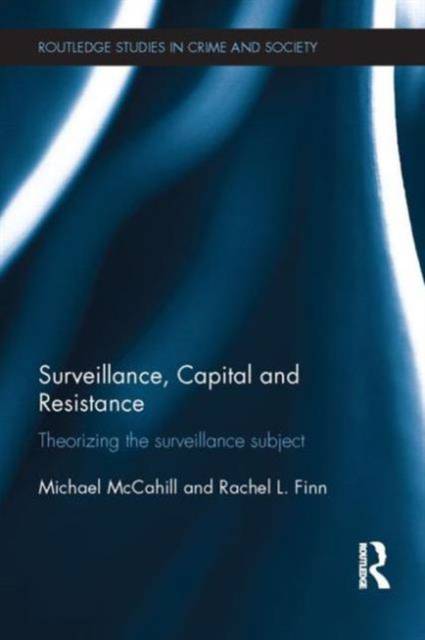
- Afhalen na 1 uur in een winkel met voorraad
- In januari gratis thuislevering in België
- Ruim aanbod met 7 miljoen producten
- Afhalen na 1 uur in een winkel met voorraad
- In januari gratis thuislevering in België
- Ruim aanbod met 7 miljoen producten
Surveillance, Capital and Resistance
Theorizing the Surveillance Subject
Michael McCahill, Rachel FinnOmschrijving
Surveillance, Capital and Resistance is a major contribution to current debates on the subjective experience of surveillance. Based on a large research project undertaken in a Northern City in the UK and focusing mainly on the use of surveillance in the context of policing and security, the book explores how a diverse range of social groups ('school children', 'political protesters', 'offenders', 'unemployed people', 'migrants', and 'police officers') experience and respond to being monitored by 'new surveillance' technologies such as CCTV surveillance cameras and computers.
The book interweaves surveillance theory with the work of Pierre Bourdieu to argue that the distribution of various forms of 'capital' - economic, social, cultural and symbolic - in any given 'field' operate as a range of goods or resources that structure the dynamics of surveillance practices and power relations, including the ability to contest surveillance. The term surveillance capital is introduced to refer to the tacit knowledge and everyday forms of cultural know-how that allow surveillance subjects to contest surveillance in a variety of local and specific settings.
The book is essential reading for anyone that might be interested in how people experience and respond to the new surveillance measures currently used in the crime control field. It will be key reading for students and academics interested in surveillance studies, childhood studies, media studies, criminal justice and migration studies.
Specificaties
Betrokkenen
- Auteur(s):
- Uitgeverij:
Inhoud
- Aantal bladzijden:
- 198
- Taal:
- Engels
- Reeks:
- Reeksnummer:
- nr. 8
Eigenschappen
- Productcode (EAN):
- 9780415688635
- Verschijningsdatum:
- 6/03/2014
- Uitvoering:
- Hardcover
- Formaat:
- Genaaid
- Afmetingen:
- 160 mm x 236 mm
- Gewicht:
- 498 g

Alleen bij Standaard Boekhandel
Beoordelingen
We publiceren alleen reviews die voldoen aan de voorwaarden voor reviews. Bekijk onze voorwaarden voor reviews.









